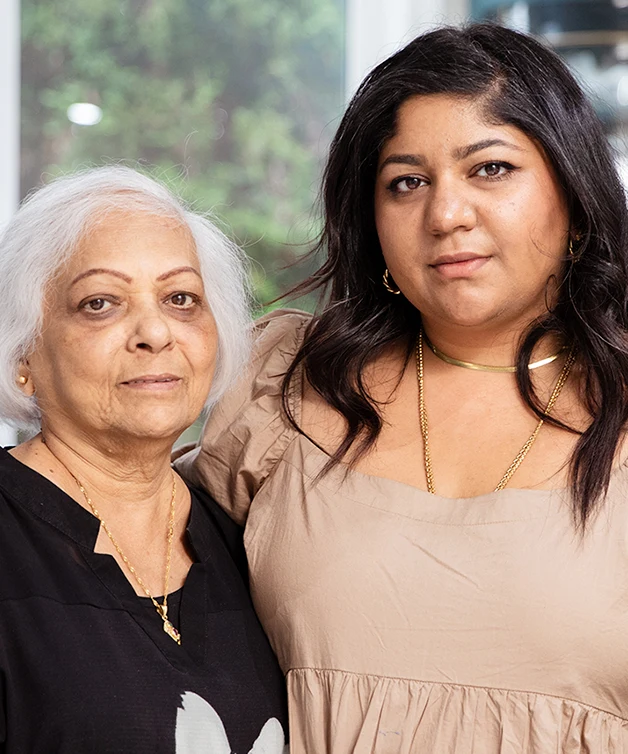Your ethnic heritage can affect your risk of heart disease and stroke. You can’t change your ethnicity, but understanding its role in your overall health can help you take steps to reduce your risk.
What is ethnicity?
An ethnic group is a group of people who share a common culture and history. The shared elements may include race, place of origin, language, religion, beliefs and traditions.
Your ethnicity may be a big part of how you see yourself; for example, growing up in a household that embraced specific religious practices, foods and more. You may also identify with more than one ethnic group.
Even if you don’t identify strongly with your ethnicity, it’s part of who you are.

Family history affects risk too.

How does ethnicity affect your risk of heart disease and stroke?
In Canada, research has shown that certain ethnic groups face a higher risk of heart disease and stroke. Some populations may face higher risks due to a variety of factors, like social conditions that affect access to care, genetic makeup, or generational trauma.
If you are Indigenous:
- First Nations, Métis and Inuit people have a higher risk for stroke and heart disease than the general population. This is because they’re more likely to have high blood pressure (hypertension) and diabetes. Both conditions can cause a stroke or heart disease.
- Indigenous people face higher rates of heart failure, and a higher risk of dying from heart failure.
If you are African or South Asian:
- People of African or South Asian heritage have a higher risk of developing heart disease and stroke. Factors contributing to this increased risk include increased prevalence of high blood pressure (hypertension), diabetes or other risk factors for heart disease and stroke that may occur at a younger age in these populations.
Why are some ethnic groups at higher risk?
The reasons are complex and can include:
- genetics and biology; for example, differences in how the body regulates blood pressure
- lifestyle and environmental factors, such as practices around diet and physical activity
- socioeconomic factors, such as lack of access to nutritious food and health care, as well as racial discrimination and language barriers.
How can you reduce your risk?
Knowing how your ethnicity affects your heart disease and stroke risk is an important first step. Talk to your healthcare provider about things you can do, including regular testing for high blood pressure and diabetes.
And remember, your ethnic heritage is only one of many factors that affect your heart and brain health. Adopting healthier behaviours can be challenging. But making any of these changes can significantly reduce your risk:
- eating a healthy diet rich in vegetables and fruit
- getting regular physical activity
- maintaining a healthy weight
- being smoke free
- managing your stress.
Do women have unique risks?
Women in these and other ethnic groups may face additional risk factors that can affect their heart and brain health. These can include:
- risks related to their life stages, including pregnancy and menopause
- traditional gender roles such as caregiving
- sex discrimination
- lack of access to culturally safe and sensitive health care
- language barriers.



